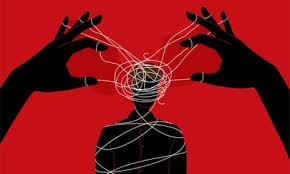When Abuse Is Hard to Name: Understanding the Whisper Before the Roar
Abuse in relationships often begins subtly, a quiet undercurrent of control, fear, or emotional pain, before it builds into something louder and more consuming. Many individuals I work with share that they initially felt something was off, but could not quite identify what it was. If something feels wrong, even if you cannot yet name it, you may be experiencing a form of abuse. Recognizing these patterns is an empowering first step toward reclaiming your voice and protecting your well-being.
As a therapist, I understand that each person’s story is unique. Through the lens of narrative therapy, we explore how your experiences shape the story you tell yourself and how we can begin to rewrite that story with strength, compassion, and clarity.
Abuse Wears Many Faces
Abuse is not always physical. Emotional manipulation, psychological control, isolation, and financial coercion are just as harmful. These patterns can quietly erode self-worth and create confusion about what is real. In cognitive behavioral therapy (CBT), we work to challenge distorted thinking and uncover the truth beneath the fear and doubt that abusive dynamics often create.
Mindfulness invites us to gently notice our experiences without judgment, what we feel in our bodies, what we think, and what we sense deep down. If you feel small, uncertain, or silenced in your relationship, these feelings are signals worth listening to. You do not need proof to validate your experience. You only need to honor your truth.
Here Are Six Common Signs of an Abusive Relationship:
-
Constant criticism, belittling, or attempts to make you feel worthless
-
Isolation from family, friends, or support systems
-
Control over your finances, schedule, or important decisions
-
Threats of harm to you, your loved ones, or themselves
-
Unpredictable emotional outbursts followed by blame or denial
-
Gaslighting, or persistent attempts to make you question your reality
If any of these resonate with you, please know you are not alone. You are not weak, and you are not overreacting. You are responding to harm with wisdom and awareness. Positive psychology reminds us that even amid adversity, your strength, resilience, and capacity for change remain intact.
Therapy as a Space to Reclaim Your Voice
Not every relationship can, or should, be saved. But every person deserves the chance to feel seen, heard, and safe. Whether you explore these issues individually or within the context of relationship therapy, the therapeutic space allows you to reflect deeply, understand what you need, and create a path toward healing.
Therapy is not about labeling or blaming. It is about holding space for your story, your pain, and your possibilities. It is about choosing growth, even when that feels uncertain. Taking the first step to reach out can feel intimidating, but it is also a profound act of self-respect.
I Am Here to Support You
If you are unsure whether what you are experiencing is abuse, or if you are ready to make a change, I invite you to reach out. Together, we can explore your experiences, build clarity, and move toward a future that honors your safety, dignity, and emotional well-being.
You deserve to feel safe. You deserve to feel whole. Let us begin rewriting your story—on your terms.
Schedule a consultation today to explore therapy options, including relationship counseling and individual support. You are not alone, and you no longer need to second-guess yourself.


